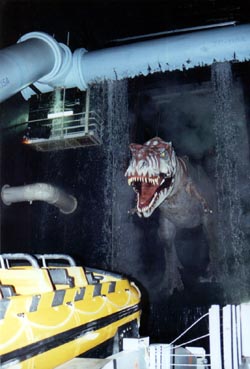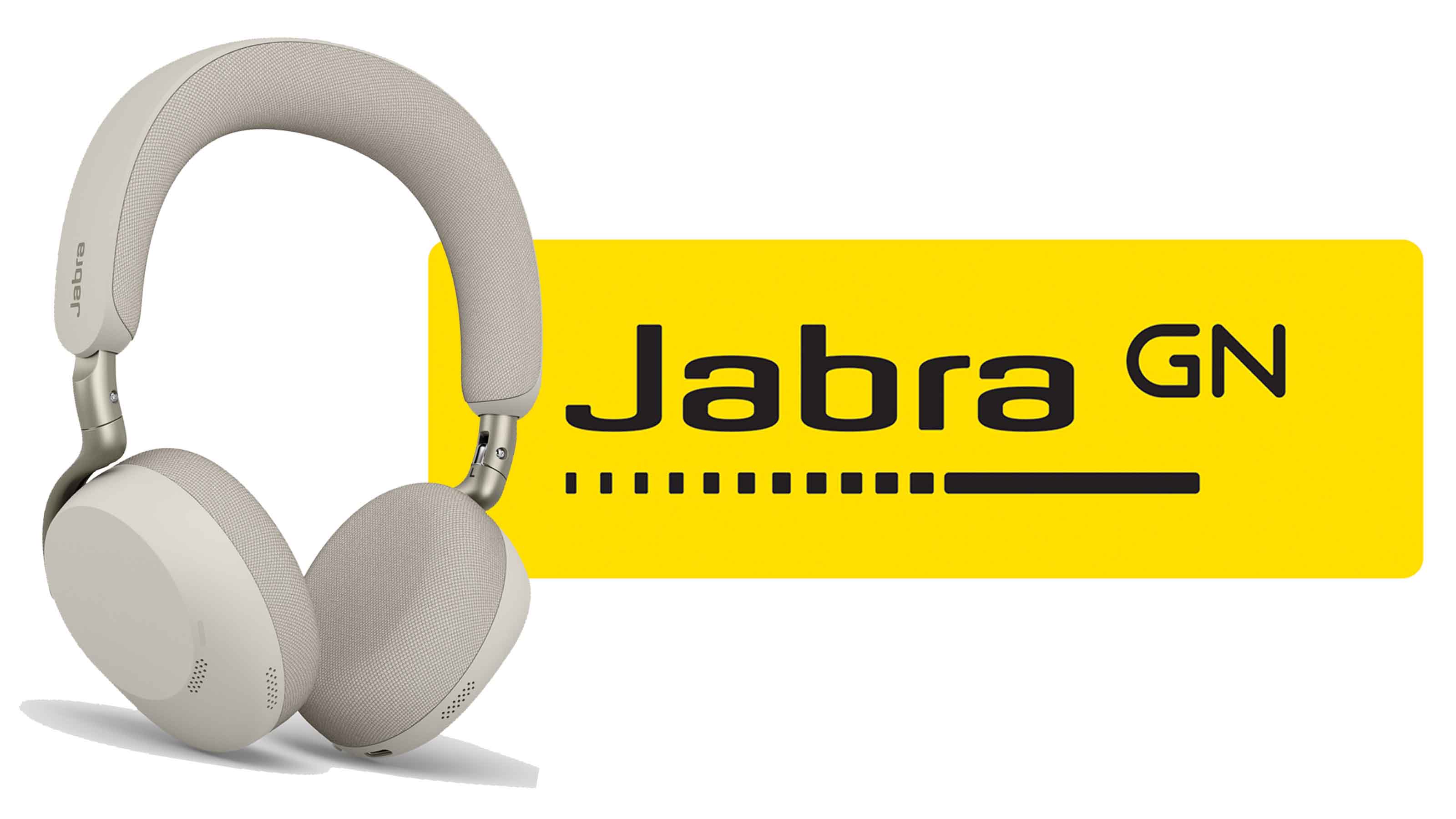Toys Of Summer

A daily selection of features, industry news, and analysis for AV/IT professionals. Sign up below.
You are now subscribed
Your newsletter sign-up was successful
- Theme park rides like the Jurassic Park Experience provide a thrill for visitors and a challenge for contractors. Technomad installed waterproof speakers here to provide the T-Rex with a voice. Now that summer has once again arrived in all its blazing glory, many families will be dropping everything, stuffing their kin into a minivan, and driving miles to the nearest theme park. What does this mean for contractors? Well, any retrofit or new projects that took place in the off season will be put to the test over the next three months, and no one can better push technology to its limits than theme parks.
- The theme park industry has taken a recent upswing as people are becoming more comfortable with travel again. Following 9/11, many parks experienced a slowdown, as Americans chose to stay close to home for vacations. But now, six years later, the travel industry has almost righted itself. David Meyer, director of sales for Technomad and an avid bumper car enthusiast, said, "People seem to be attracted to theme parks again because they're more comfortable with traveling. I think that comfort with travel and dollars is behind it as well. And bigger parks are getting an upswing in locals visiting. They are making it worthwhile for the locals to go. For example, if you're a California resident, then you get a cheaper ticket to Disney."
- To get people in the doors, technology can definitely provide something people want to see. But there's something else that visitors are looking for, as Meyer explained, "There's more expectation from the customer for a more exhilarating and visceral experience. When people go to the Jurassic Park Experience in Universal Studios, they want to be scared and have that same visceral response that a rollercoaster gives you. When you hear the response from people inside the ride, you can just tell, it's the pure thrill of it. With roller coasters, it's the motion and the feel of being just at the edge of out of control. With theme parks, if it's not a visceral experience, they're going to get caught up in whatever the theme is. If it's like Old Sturbridge Village in Massachusetts, a recreation of an old western town, you feel like you're there. That's the whole deal of theme parks, to make you feel like you're there."
- A big question for a lot of contractors is whether or not the theme park market is worth getting into. Bill Platt, head of consulting firm Platt Design and aficionado of Illuminations at Epcot Center, said, "There's money in the market, but it's a very specialized marketplace. There are a few contractors, but not many. The bigger companies, like Disney and Busch Entertainment, they tend to go to certain vendors all the time. So there's not a lot of new business in those areas. Personally I don't see the growth of available work unless you've been connected with theme parks in the past. It's hard to get in I'd say. Certainly you could get in by selling a quote, but as far as the design and development, the industry tends to look at people that have experience with theme parks. But there's always the opportunity for someone that has creative ideas for this market--being creative is this whole industry."
- Jim Chase, sales manager for MediaMatrix and a Space Mountain junkie, agreed about available work. "I would make the case that there's a lot of business there, but not a lot of contractors that will get that business," he said. "The new Six Flags job, where they're retrofitting the sound systems of most of the parks, there's just one contractor doing them all. I see, in the major parks, a lot of that work being done in house or by a limited group of contractors. I don't think it's a very wideband opportunity. It's not like churches, which is the single biggest market. It's a much smaller business."
- Meyer sees the availability a little different. He said, "There's a fair amount of attractions being built all over the place, and it's all themed entertainment, even if it's just a few square blocks. That market is budding as the construction market continues to get healthy again, slowly. I think a lot of it has to do with the technology, and as we continue to find sources of cheaper materials overseas, it helps people build more here. Although it doesn't help American jobs the way we'd like. It's getting harder for a local contractor to buy American made steel because it's too expensive. But advancing technology helps the planning process go quicker and the prefabrication of construction, material be more precise."
- Theme parks are working much harder to bring in visitors, but this has proved to be much harder in recent years. With the advent of technology in the home, it takes a lot more to turn kids' heads. Jim Chase, sales manager for MediaMatrix, explained, "When you get down to it, the end user is more savvy about technology. You have to meet their expectations and wow them. That's why Six Flags really started to understand that they weren't going to attract the people they wanted without improving the whole experience, so they're retrofitting their parks. And the integration of all a park's systems is a big part of impressing the visitor."
- David Meyer, director of sales for Technomad, agreed. "People are more tuned to technology," he said. "Look at the average video game a 10 year old plays now--they're much more complicated than anything we saw 10 years ago. And look at what else people have in their homes, and in their cars, and what they see at the movies. So if you can have all that as a consumer, when you're going to spend your themed entertainment dollar, you have a very high expectation of what's going to be presented to you, or you're not going back. I think a lot of that ties to technology, projection, controls systems, and of course sound reproduction."
Instead of the usual thrills like this coaster provides, many theme park owners are retrofitting rides to draw an audience that's more comfortable with technology.
To keep people coming in, a lot of parks have opted to let animated and costumed characters interact more with visitors, almost eliminating the human element altogether. Scott Norder, executive vice president of business development for AMX, said, "If you go the major tradeshow of IAAPA, much of the newer stuff you'll notice is largely around the electronics. You'll see sophisticated use of animatronics as the MC for a show, whether it's Shrek or some other character. Humans are less involved because that's what people are expecting to see. You'll pay top dollar, 60 to 70 dollars a day, just as the entry fee. From the park's perspective, you want people to stay, be excited, and spend more money on food and souvenirs. People are expecting quite a lot more value for their dollar as a result and technology is the winch pin in delivering that experience."
So what's in the future for theme parks and what can contractors look for to capture new business? Our experts held similar views for the future, and everyone agreed that technology was in the forefront. Scott Norder, executive vice president of business development for AMX and the guy in the front car of the Superman Ride of Steel at Universal Studios, explained, "The need for technology is going to continue to accelerate. Older style attractions will be redone, or refurbished, or removed for something more 21st-century. That's a good indicator that there will be a lot of activity coming down the pipe for us, and this is very global. IAAPA [International Association of Amusement Parks and Attractions, source of the statistics in this article] now does three tradeshows around the world, so it's quite a global phenomenon. And any time it's a global trend it certainly buoys out our interest in that market sector, so even if it slows down in the U.S., we'll still see a different demand elsewhere in the world."
A daily selection of the top stories for AV integrators, resellers and consultants. Sign up below.
